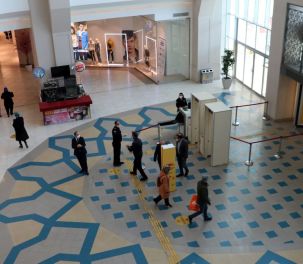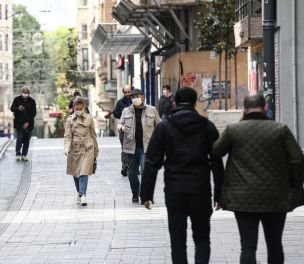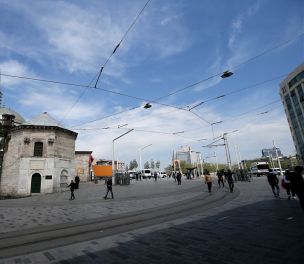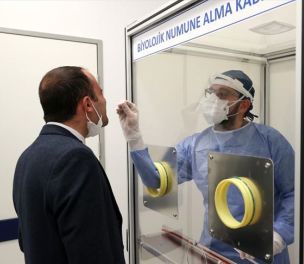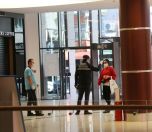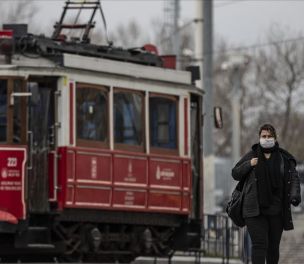Click to read the article in Turkish
We have spoken with Emergency Medicine Specialist Dr. Başar Beyoğlu about the "normalization" measures in Turkey amid COVID-19 pandemic.
A member of the Turkish Medical Association (TTB) and Ankara Medical Chamber, Dr. Beyoğlu argues that the perception of normalization will get ahead of "real" normalization and raises concerns over a potential exaggeration and misinterpretation of this perception. He also underlines the importance of widespread testing and transparency in sharing data.
Stressing that shopping malls are especially risky in terms of the spread of the disease, he thinks that the air created in society drives it to inertia.
In a statement released by the TTB, of which Dr. Beyoğlu is "a proud member," it has been underlined that the normalization steps have to be taken in line with epidemiological data rather than the pressures of the market. TTB has also reiterated that the health of the people and health workers need to be protected in this process.
to be taken in line with epidemiological data rather than the pressures of the market. TTB has also reiterated that the health of the people and health workers need to be protected in this process.
Dr. Başar Beyoğlu has answered our questions regarding the current situation in Turkey amid COVID-19 pandemic...
Following the statements of "normalization", the streets have got crowded, shopping malls and hair dressers will be opened soon. How do you think it will affect the course of outbreak?
It is important to differentiate the content of this climate of normalization. Given the climate in our country, it seems that the perception of normalization gets ahead of "real" normalization, which draws us away from real data and transparent information and drives us to an exaggerated air of normalization and inertia. It is important to make this differentiation because I think the most important answer to the question as to what awaits us in the days ahead and how people will act lies in the differentiation of this exaggerated and prematurely expressed perception of "normalization."
Having noted this, we think that one of the most important issues and a point that will change the course of the outbreak is the premature decision about shopping malls. It will - without a doubt - affect the course of this outbreak quite negatively and - it might sound a bit assertive - but I will still argue that given their ventilation systems and difficulties in keeping social distance and preventing contact, shopping malls in their present conditions are more dangerous than pandemic hospitals in service today. It is a factor that will drastically change the course of the pandemic, of course, in a negative way. As I would not give my patients the medicine or treatment that I would not take myself or give to my loved ones, I do in now way recommend them to enter places like shopping malls and I won't go there myself, either.
'Japan and Singapore experience it bitterly'
Doesn't the fact that measures are loosened mean that the outbreak is finally coming to an end?
Japan and Singapore are now quite bitterly experiencing that it will not be the end of the outbreak. The end of the outbreak will come when we reach the point that we call R0, which refers to the time when the number of a patient who infects others in a society vulnerable to infection drops under 1. This figure is over 1 now and unless we have immunity against it not only as the society of this country, but as the people of the whole world, this outbreak will keep on living with us and we have to live with it. Loosening the measures, unfortunately, does not eliminate the problem in question.
'The cooling off that we hear on televisions... We don't see it in the field'
If the number of cases starts increasing again, can hospitals and health workers bear this load? How is the current situation in hospitals?
In their current conditions, hospitals were already having difficulties in shouldering this load. It was the case apart from some leading hospitals. If we talk specifically about Ankara... The cooling off, or calming down that we hear on televisions... We do not experience it in the field.
While we see indicators for falling numbers of patients in pandemic hospitals that we call leading hospitals, we also see that additional services are opened in some hospitals, again in Ankara in particular. When the situation is so variable, it would not be wrong for me to say that health workers do no longer have the strength to bear an extra load.
No matter what wave you want to call it, we are preparing for that imminent wave and our several fellow physicians experience the tiredness, fatigue and burnout left behind by the current first wave.
'We are the ones who will determine the peak'
Can the course of the outbreak be described as the "peak"?
The notion of peak has become so popular, just like "normalization" that they are talking about now... We are the ones who will determine the peak of the outbreak. The moment when we say that we are at the peak today, we will make a mistake at any time because the peak will always get higher until we develop immunity as a society. We are far from it now.
According to some data that I have a dissenting opinion about, we are in a phase that we call a plateau, but we think that these data are still quite insufficient. We still do not know the data about the regions (I don't say cities) where the patients are grouped, their age, gender, comorbid patients, etc.
Just think about it: We are called the army of health, but we do not know where the enemies are and how many of them there are. For this reason, we first need transparent data and widespread testing without any interruptions so that we can determine or talk about the peak of the outbreak. Otherwise, the premature loosening of measures without any precautions is making us the candidate for a new peak every day.
'It must be due to dire economic straits'
While occupational organizations are insistent on the continuation of measures, what is the reason for this hurry?
My occupational organization Ankara Medical Chamber and Turkish Medical Association (TTB), which I am a proud member of, do not only maintain that the measures must remain in effect, but they have also been defending accessible and free preventive medicine and healthcare services for years. Since the onset of the outbreak, the TTB has tried to take an active part in the process; however, ears have been shut to this, they have not been heard. Since the first days of the process, the TTB has put an emphasis on especially the number of our infected health laborers and what kind of precautions have been taken. It has announced the number of infected healthcare workers by province in the light of the information that it has received from the field. They were apparently hearing us, as the Minister has started to share our numbers in sorrow after that.
Frankly speaking, while it is having such an outbreak, the government will either choose science and facts - no matter how much it does not like them - or shutting its ears. Insisting on such a contention which will cost human lives, the government will hopefully abandon this attitude. Even today, when people long for a healthy life, they are poised to amend the election laws of the TTB, one of the most reliable occupational organizations, and the like.
Seeing that the government take these steps, such as lifting of travel restrictions in some cities, despite our all reservations, I - as a physician from Antakya with origins in Burdur - think of tourism business and seasonal agricultural workers. The fact that shopping malls precede the Constitutional Court, that is, the law and the fact that tourism comes before education are - without a doubt - caused by dire economic straits... (AS/SD)





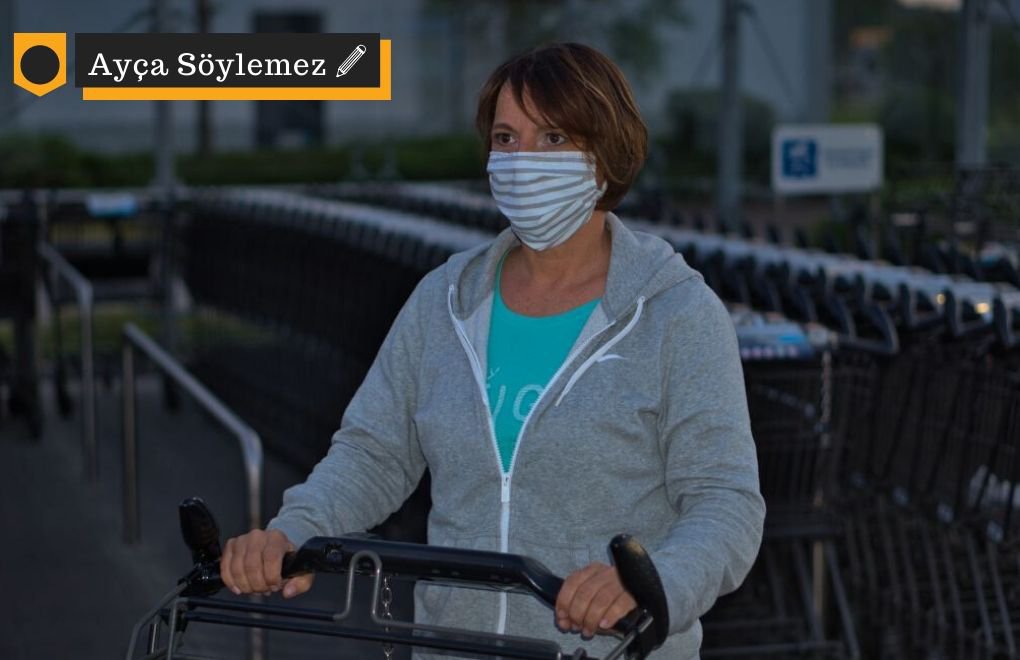
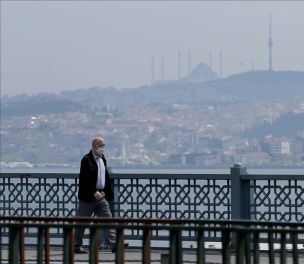
svdf.jpg)

